Trauma! Emotional trauma! Mental trauma! But have you heard that your body stores trauma! I think it’s one of the most important yet ignored topic, we don’t often give attention to our body, when we get stressed up, when we are facing any kind of trauma and we are not even aware about this fact, that with “trauma” not your mental state reacts and suffers but your body does react to in a loud and urging way, so today’s topic of highlights is “how your body stores trauma” and what could be the reason the way it’s reacting.
Not only will you get to learn– how your body reacts to trauma, but the signs it shows and most importantly the ways and mindful experts and well researched solutions to get out the way your body stores trauma. We have gone through a number of studies and researched papers to deepen the learning of our readers. It’s painful to see when you suffer but it becomes more painful when you are clueless what can be done to get out of this mental and
somatic or bodily suffering.
Story of self-pettiness and the trauma.
Story of one of the friends, whose self pettiness leads her to the darkness of thoughts, where she feels she is useless, she is ugly, she is not good enough to get any skill.
It happens mostly in childhood where one’s heart is as delicate as a jasmine flower. Of course the environment was so curseful, that she stopped thinking good about herself, getting harassed by the words of people and not knowing what is all this and how to take and react towards such things, she believed in the words of other people.
Her mental Trauma led so high, that by 7th standard she didn’t know but her body reacted in the worst of ways by developing an autoimmune disease. Where not only other people, but now her body is also attacking her.
Now, situation got worsened till her attitude and relationships got improved with herself, by the graduation she got to know the concept of self love and the self improvement books, as deep she went the black and white world helped her to get out of her situations and overall circumstances, “how it all is, the way people backstab through their words and barely someone here appreciates your character”.
Unhealed trauma, mind and body.
According to a NIHMS study, pain is an unpleasant sensory and emotional experience which is associated with actual or potential damage.
Why doesn’t your body react to every stress?
Your body knows how to react towards small pain points and how to heal it from such short shocks but when the pain is persistent for more than 3months, whether mental or emotional, so it starts to develop some disorders in the various system of your body, like respiratory system, circulatory system etcetera.
Persistent pain or trauma evolves with or without your acknowledgement and it harms your body in every possible way it can.
As per APA(American psychological association) our bodies are equipped for small stress doses but when the stress stays for long term–then it has some serious consequences.
During short shocks and problems, your body prepares it to fight by increasing the flow of cortisol and it switches on, its active mode– which takes most your energy by dealing with it, and that’s how you fight with your short mental/somatic problems but if the body is always on awareness mode so all your energy is only going to fight that pain problem, and after a long time. It gives up its defensive mode and since it starts to guard its cells off, the problem evolves and makes your body disturbed by developing some tensions in your body, or malfunctioning of your body.
And do you know as per studies – if your body finds the fear of an external stimuli then it inhibits the pain in your bodily and mental system but on the other side, if it’s suffering from internal anxiety then it worsens your condition.
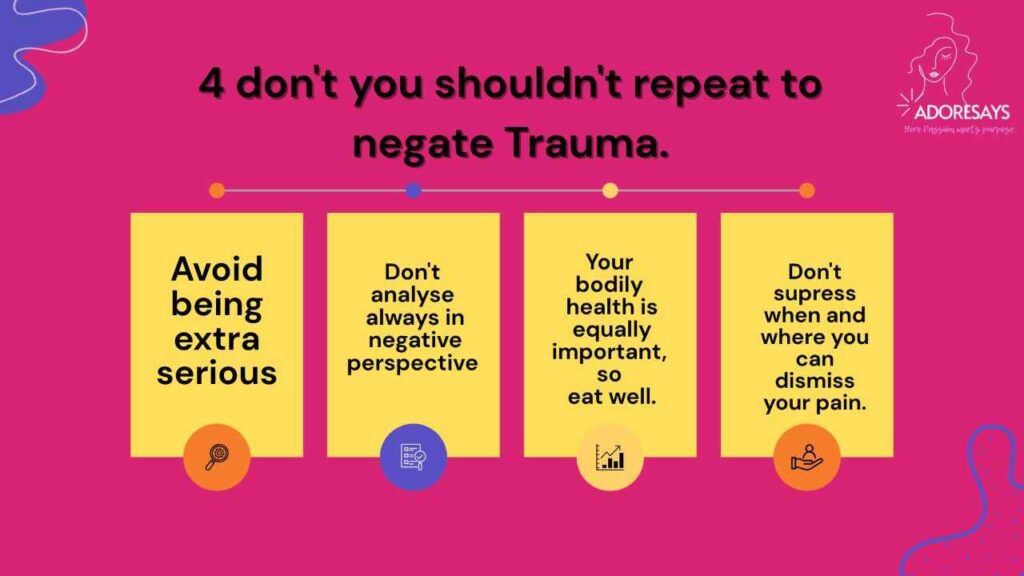
Your pain’s three dimensions.
- Sensory-discriminative dimension.
Sensory discriminative dimension helps you to identify location, timing and physical characteristics of your pain.
For example: During an emotional heartbreak, you know that your chest becomes heavy, your throat and jaw tightens as you try to speak or try to get into that pain.
2. Affective motivational dimension.
It’s most closely linked with your emotions, underlies that feeling of unpleasantness you go through whenever you are in pain. It also activates your defensive behavior such as escape and recuperation, it enables the person to cope with noxious stimulus.
- Cognitive – Evaluation dimension.
The last dimension shows how your pain/stress/trauma influences the appraisal of meaning and what can be the consequences of an injury or pain on your body.
Psychology of emotions and your pain.
As per this study, emotions are one of the contributing ways or factors of your pain; other factors can be genetic factors, environmental contingencies, or overt- behavior ( exercise, deconditioning, placebo effect and cognitions.
But here we will particularly talk about the emotional aspect of your trauma or pain, so there are 4 psychological processes relevant for your negative emotions.
- Emotional awareness.
Do you know being aware is one of the most important features when you are trying to heal your mind, body or soul.
But it’s been evident that there are people who cannot recognize or get aware about their pain, differentiating or labelling their feelings.
They have no words to label their pain, feelings. Basically they are in the deficit to identify their feelings, but do you know what’s called this psychological condition?
It’s called Alexithymia. Commonly we become happy and think it’s one of the good traits that we can’t recognize or get aware of our pain. Neither we have to recognize nor we have to suffer. Isn’t it? But No! A big No if you this way is correct.
Researchers view this non recognition ability as a risk factor for one’s pain. In fact Clinical research suggests that people with limited awareness and verbalization, to describe their pain might result in frequent muscle fighting or stomach hurt.
2. Emotional expressions vs suppression and pain.
When you have frequent ambivalence (two different emotions at the same time) over your emotional expressions, you develop internal anxiety to not express yourself. As a result of this ambivalence, you disown the idea to express your pain, emotions or often linger into the thoughts of consequences after sharing your emotions.
As much as this feature creates trouble for you, no one can. Emotion suppression leads to greater pain, sufferings and maladjustments.
Also when you can’t express your emotions fully, you can’t show any emotion which might be – you want to cry but you can’t, you want to express your anger but you can’t.
But suppression gets worse when your anger suppression leads to lower pain tolerance and higher pain ratings.
3. Emotional experiencing.
It is viewed as a good trait, where one person can experience its pain, emotions and can even express it fully.
Experiencing your emotions can make an effort to promote better health and your somatic functioning. Because experiencing then showing your emotions is working as an outlet of your negative emotions which decreases way more chances to harm your body, mind or soul.
4. Emotional modulation.
After examining fully, how emotions and duration of pain may modulate the experience of your pain.
The modulation shows how your emotions can refer to the positive-negative quality of an emotion, extreme negative may result in experiencing kinesiophobia and its arousal describes the intensity or activation of emotions.
Kinesiophobia- it’s an excessive or irrational fear of movement and injury or re-injury is one the aspect of pain.
Your pain modulation can be conceptualized through 4 ways :-
● Fearful thoughts about the pain and it’s consequences.
● You might experience cognitive anxiety.
● Somatic anxiety through bodily responses.
● You might think to escape / to avoid pain.
Signs when your body is holding trauma.
- Muscles and your trauma connection –
When your body takes persistent stress so it might evolve in your muscles like muscle tense up, and it’s one of the short way– it’s guarding your body, but when it last for long – long time, then body reacts more by promoting simple muscle tension into stress disorders such as migraine headache, pain in your lower back.
2. Strong emotions and your stress.
When you feel negative strong emotions and it triggers the shortness in your breath or you might start to breath rapidly. That’s because your body isn’t supporting your strong emotional reaction.
You might have faced this situation when your breath becomes heavy or you are unable to breathe or suddenly you start to breath fast, even when you go through heartbreaks, which of course is an emotional damage to your system.
According to the studies of APA, such acute stress and instances like these can trigger an asthmatic attack on the person or you might feel a panic attack.
3. Fight or flight response of the body towards your trauma.
Acute stress/ momentary stress for example, missing the deadlines, sudden shocks or bad news.
Instances like this increase your pulses, basically your heart rate and it results in stronger contraction of heart muscles, with stress hormones – adrenaline, Noradrenaline, cortisol.
They work as a messenger of your reaction effects. In reaction to this, your blood vessels might start to increase the supply of blood and a sudden increase in blood pump may cause high blood pressure in your body.
As the blog becomes quite lengthy so, For the solution, go through the next blog in which all the 5 somatic healing practices are explained to get you out from your trauma, stress.
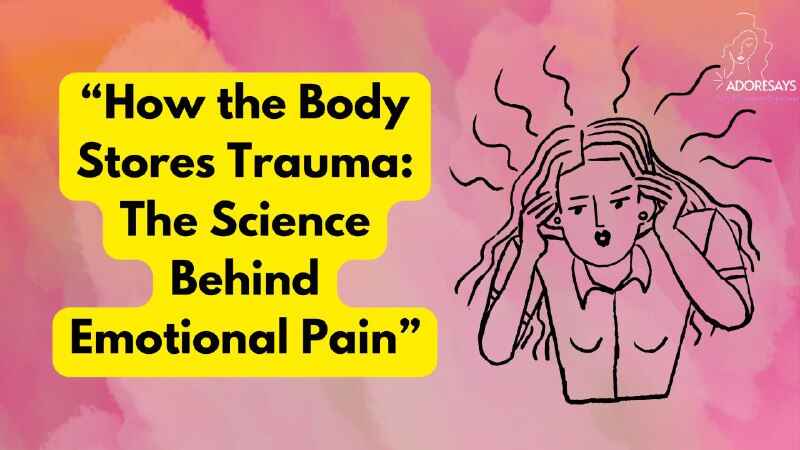
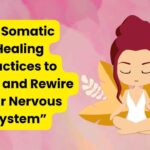
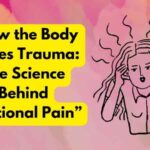
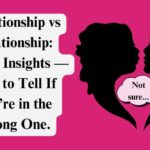

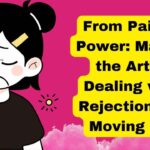
Leave a Reply